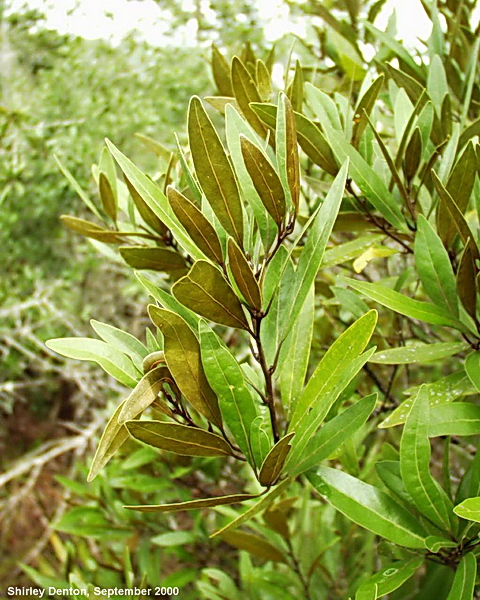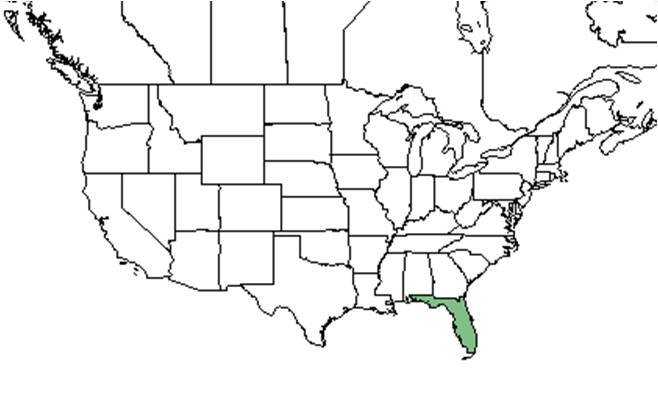Difference between revisions of "Persea humilis"
Krobertson (talk | contribs) |
Krobertson (talk | contribs) (→Taxonomic notes) |
||
| Line 22: | Line 22: | ||
Synonyms: ''Tamala humilis'' (Nash) Small; ''Persea borbonia'' var. ''humilis'' (Nash) L.E. Kopp | Synonyms: ''Tamala humilis'' (Nash) Small; ''Persea borbonia'' var. ''humilis'' (Nash) L.E. Kopp | ||
| − | Also called scrub bay<ref name="floridata">[[http://www.floridata.com/tracks/scrub/per_humi.html]] Floridata Accessed: February 20, 2016</ref> | + | Also called scrub bay.<ref name="floridata">[[http://www.floridata.com/tracks/scrub/per_humi.html]] Floridata Accessed: February 20, 2016</ref> |
==Description== | ==Description== | ||
Revision as of 13:42, 18 August 2016
| Persea humilis | |
|---|---|

| |
| Photo by Shirley Denton (Copyrighted, use by photographer’s permission only), Nature Photography by Shirley Denton | |
| Scientific classification | |
| Kingdom: | Plantae |
| Division: | Magnoliophyta - Flowering plants |
| Class: | Magnoliopsida – Dicotyledons |
| Order: | Laurales |
| Family: | Lauraceae |
| Genus: | Persea |
| Species: | P. humilis |
| Binomial name | |
| Persea humilis Nash | |

| |
| Natural range of Persea humilis from USDA NRCS Plants Database. | |
Common name: silk bay
Contents
Taxonomic notes
Synonyms: Tamala humilis (Nash) Small; Persea borbonia var. humilis (Nash) L.E. Kopp
Also called scrub bay.[1]
Description
A description of Persea humilis is provided in The Flora of North America.
The leaf is shiny green on the top, with dense rusty-red hairs on the bottom[1]. These hairs on the lower side of the leaf help reduce water loss.
Distribution
P. humilis is limited to the scrubs of the Florida peninsula[1].
Ecology
Habitat
It is endemic to rosemary and sand pine scrubs in peninsular Florida [2].
Pollination
The following Hymenoptera families and species were observed visiting flowers of Persea humilis at Archbold Biological Station: [3]
Colletidae: Colletes brimleyi, C. nudus
Halictidae: Augochlorella aurata, Augochloropsis metallica
Sphecidae: Bicyrtes quadrifasciata, Cerceris fumipennis
Vespidae: Euodynerus apopkensis, Polistes metricus, Pseudodynerus quadrisectus